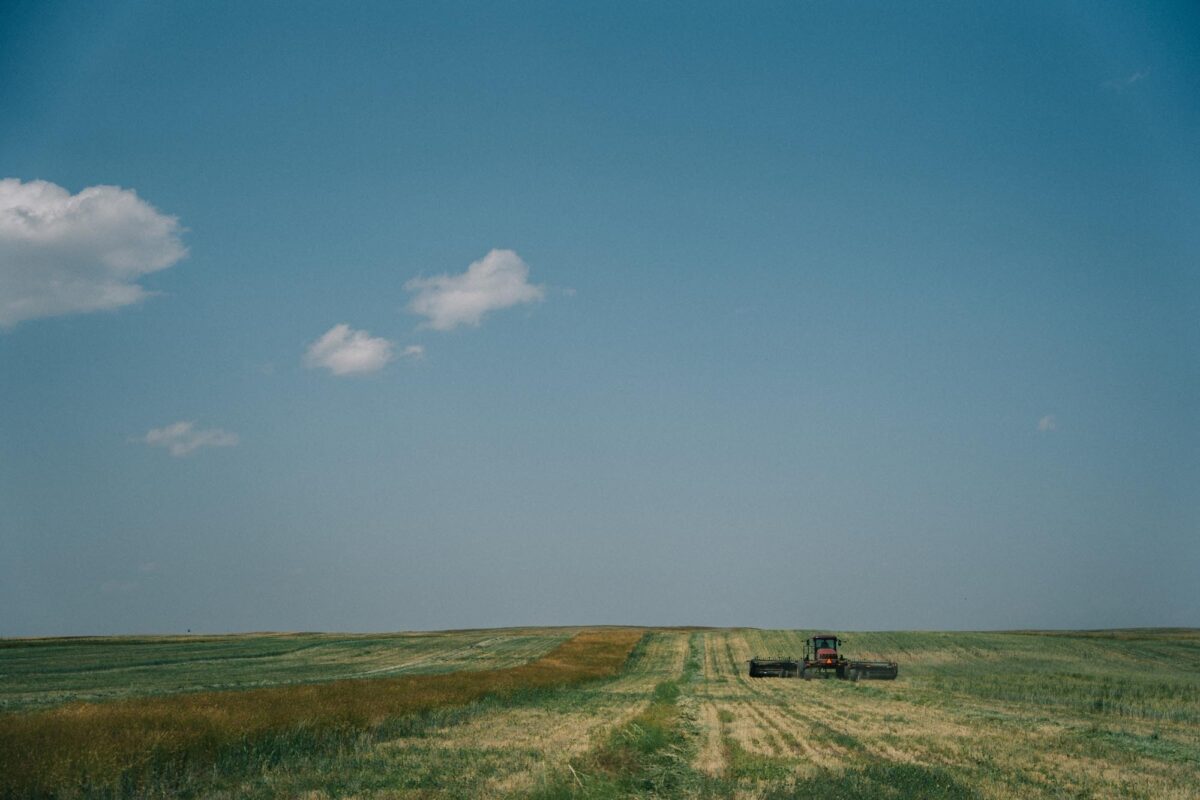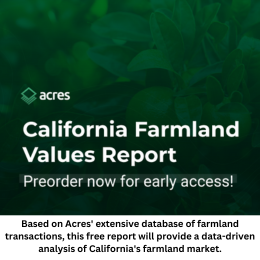March 21, 2024
By Lynda Kiernan-Stone, Global AgInvesting Media
Mad Capital has launched its $50 million Perennial Fund II (PFII) with early capital commitments from Builders Vision, The Rockefeller Foundation, the Schmidt Family Foundation, Zellis Family Foundation, Zarpet Family Foundation, Matthew Zell Family Foundation, Lacebark Investments, and nine other unnamed investors.
Launched in 2019, Mad Capital has been providing financing to regenerative organic farmers for five years, deploying over $25 million to 30 farmers as of February 2024. The success of its model has helped transition over 10,500 acres of land to organic, and has grown Mad Capital’s total portfolio acres by 26 percent per year, to 79,115 acres.
Now, the addition of PFII brings the firm closer to its ultimate goal of financing 5 million acres of regenerative organic farmland by the end of 2032.
“The Rockefeller Foundation believes Mad Capital’s model and team have a strong track record of delivering both the performance institutional investors are seeking and the impact on people and climate the world needs,” said Maria Kozloski, senior vice president of innovative finance and economic equity, The Rockefeller Foundation.
Through this platform, Mad Capital stated it aims to provide U.S. farmers with tailored loans to help them transition to regenerative organic farmland, while also increasing farm profits. Building upon the success of its portfolio of funds in support of this transition, PFII will bring Mad Capital’s total financing to more than 150,000 acres, and number of partnerships with farming families to more than 50.
Conventional agriculture often acts in a capacity as its own worst enemy. Despite being a contributor, agriculture is also one of the most vulnerable sectors to climate change. But regenerative organic growing practices, which work with nature instead of against it, optimize the health of the entire ecosystem, offer growers the ability to build healthy soils that can protect crops from uncertain rainfall patterns, reduce the need for inputs, reduce farm costs and risks, restore biodiversity, and strengthen the long-term value of the land.
This reimagined approach to food production aims to achieve greater agricultural sustainability, productivity, and profitability through climate change countermeasures and conservation of ecosystems and natural resources.
Once viewed as a fringe movement or a catchphrase, this production methodology has now gone mainstream, rapidly becoming a focus of some of the world’s largest CPGs as they take a more active role in determining the integrity of their supply chains.
Amid this momentum, however, the U.S. is lagging. Only 1 percent of U.S. farmland is certified organic, compared to nearly 10 percent in the EU. This gap in adoption is largely attributed to a lack of access to capital, as traditional financing institutions lack the understanding and financial products to support regenerative organic farmers, according to Mad Capital, which understands that regenerative organic production at scale doesn’t just happen. Such projects need time and innovative flexible pools of customized financing to successfully be implemented.
“We are aiming to build a bridge between two distant worlds that need one another to transition our food system – Wall Street and organic farmers,” said Brandon Welch, co-founder and CEO, Mad Capital.
“Providing farmers with access to capital gives humanity a shot at producing an abundance of healthy food while being ecologically accountable to our working lands and those that steward them.”
Mad Capital explained that PFII will utilize a blended structure with a first-loss pool to bolster the underlying performance of this rapidly emerging sub-asset class within the broader ag lending field. While the framework is designed to generate impact forward and uncorrelated current yield within the core fixed income allocation of a portfolio.
Early indications from the firm’s Perennial Fund I (PFI) portfolio show that this risk is further reduced within the niche of regenerative organic farming due to the significant increase in on-farm revenue generated from organic premiums.
Phil Taylor, co-founder of Mad Capital, concluded, “This is a bold re-imagination of financing in nature’s image, empowering farmers to create farm ecosystems that are good for the Earth and good for humanity.”
~ Lynda Kiernan-Stone is editor in chief with GAI Media, and is managing editor and daily contributor for Global AgInvesting’s AgInvesting Weekly News and Agtech Intel News, as well as HighQuest Group’s Unconventional Ag. She can be reached at lkiernan-stone@globalaginvesting.com.
*The content put forth by Global AgInvesting News and its parent company HighQuest Partners is intended to be used and must be used for informational purposes only. All information or other material herein is not to be construed as legal, tax, investment, financial, or other advice. Global AgInvesting and HighQuest Partners are not a fiduciary in any manner, and the reader assumes the sole responsibility of evaluating the merits and risks associated with the use of any information or other content on this site.

Let GAI News inform your engagement in the agriculture sector.
GAI News provides crucial and timely news and insight to help you stay ahead of critical agricultural trends through free delivery of two weekly newsletters, Ag Investing Weekly and AgTech Intel.




